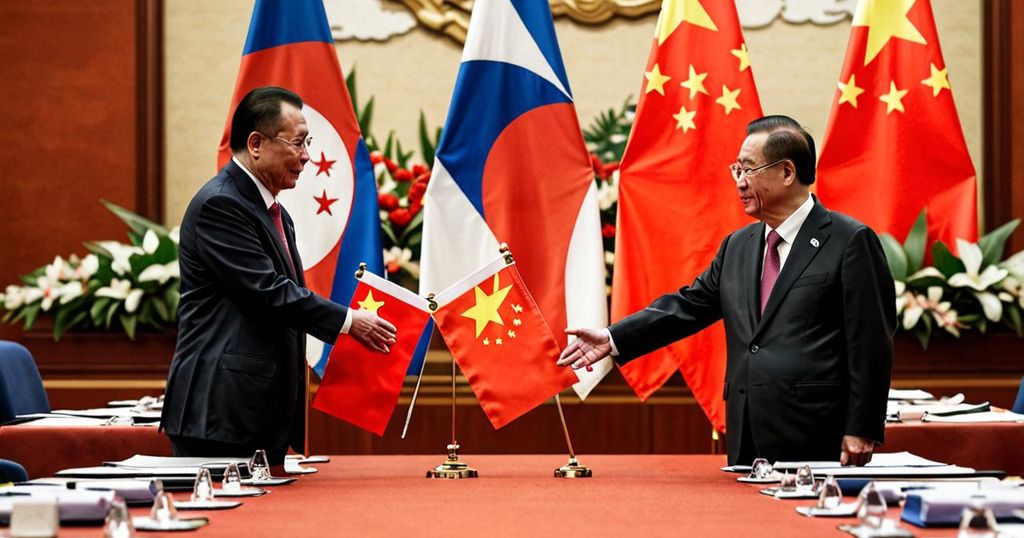The Republic of the Philippines has recently issued a formal warning to the People’s Republic of China, expressing grave concerns over allegations of wiretapping involving a senior navy officer. Senator Francis Tolentino has suggested that Chinese diplomats may face expulsion from the country should an investigation confirm that they have violated the Philippines’ anti-wiretapping law. In addition, security experts have cautioned Manila to be prepared for potential repercussions, including retaliatory actions against Filipinos working in China.
The alleged incident involves Carlos, the head of the Philippines Navy’s Western Command, and a 12-minute phone call with Chinese representatives. It has been claimed that during the call, Carlos agreed to Beijing’s protocols regarding resupply missions to the Philippines’ outpost on the Second Thomas Shoal, a contested reef within the Philippines’ exclusive economic zone in the South China Sea, known to Manila as the West Philippine Sea.
The alleged agreement specifies a “1+1” format, requiring each side to deploy one coastguard vessel and a resupply boat. The Philippines would also be obligated to notify China two days in advance of any resupply missions to the shoal, which can only involve the delivery of food and water. If the wiretapping violation is verified, Tolentino has indicated that he would demand a formal apology from China, as well as the waiver of diplomatic immunity for sanctions to be imposed.
Justice Secretary Jesus Crispin Remulla has instructed the National Bureau of Investigation to conduct a thorough investigation into the alleged illegal wiretapping activities of Chinese diplomats. While diplomats are typically granted diplomatic immunity under the Vienna Convention, Remulla emphasized that they are still subject to Philippine laws and are responsible for any illegal actions committed outside their official duties.
Political analyst and professor, Edmund Tayao, pointed out the vulnerability of the Philippines and the need for a comprehensive preventive plan to address such issues. He stressed the importance of strong and coordinated action by security agencies, including intelligence services, and emphasized the need to prepare and manage the implications of these actions on the country’s relations with China.
Given the potential fallout from these allegations, Manila Representative Bienvenido Abante highlighted the risks associated with allowing large numbers of Chinese nationals to live and work in the Philippines. He emphasized that while the Philippines has always welcomed foreign guests, those who violate the country’s laws should be promptly expelled and barred from returning.
The Philippines’ response to these allegations reflects the gravity with which they approach the issue at hand. Whether or not China will formally address the accusations and potential consequences remains to be seen, but the Philippines is committed to upholding its laws and safeguarding its sovereignty.

Leave a Reply